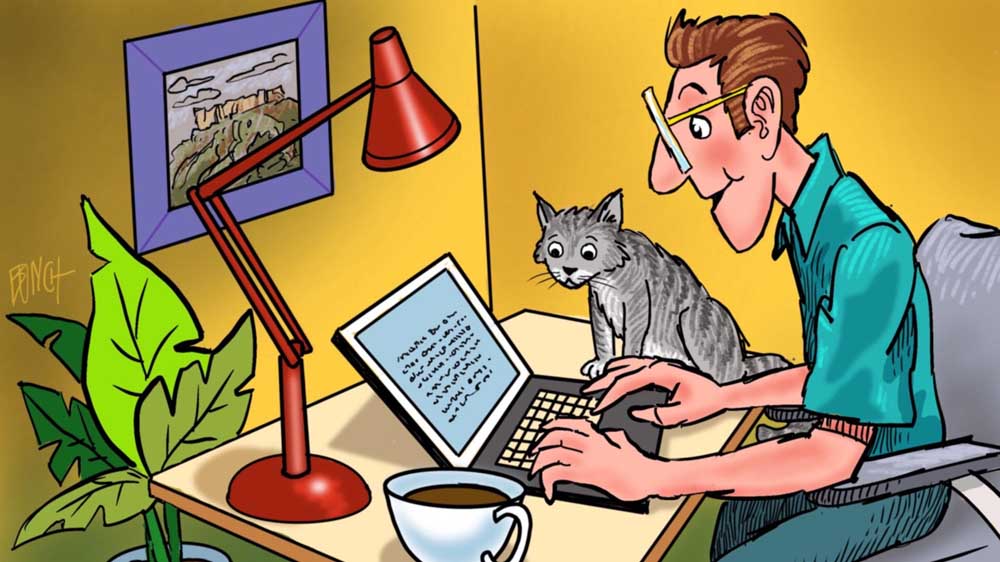READERS WHO WRITE: The battle to become bilingual at 6
Published 6:00 am Sunday, October 8, 2023

- Readers Who Write
When I was a baby, my mother would talk to me in the Frisian language.
Trending
You may wonder what kind it was and where it was spoken. It all goes back a long time. Frisian was once the primary language of a large geographic region called Frisia, which spanned the North Sea and islands of modern Germany and the Netherlands during the early and late Middle Ages.
Frisia itself may no longer exist, but there are still thousands of people who speak the Frisian language. Do understand that it is not a dialect but an official language. The language is primarily spoken in the province of Friesland, one of the 12 provinces of the Netherlands. In the rest of the provinces, Dutch is spoken.
The road to modernity was not a smooth journey for the Frisian language. The name most likely comes from an ancient Germanic tribe, the Frisii, who dwelled in what once was an independent territory with its own language and kings. Due to several severe floods, the Frisii suffered a dynamic decrease in population. Those who remained found new neighbors in the Anglo-Saxon settlers, mingling with them to become the ancestors of the modern-day Frisians.
Trending
After various squabbles for land, a Holy Roman Empire interlude and a losing war with the counts of Holland provinces, the formerly United Frisia dissolved and was divided between domains later to become Germany and the Netherlands. Along with the defeat came significant lingual changes.
Written records of Old Frisian date back before the 8th and 9th centuries, but Frisian eventually became a purely verbal language and was somewhat gradually undermined by the more dominant languages of Dutch, German and Low German.
In the meantime, the struggle for survival was fearsome and took a long journey. It was 1948 when two farmers received a citation for breaking an article from the National Milk Union code. One of the farmers had painted on one of his milk cans the word “Molke.” This should have been the Dutch word “milk,” instead being the Frisian word. The other farmer used the word “supe” on his cans instead of the Dutch word “buttermilk.” Both men had to appear before a judge in a court of law.
The judge had been living in the province of Friesland for more than 20 years and therefore was well acquainted with the Frisian language. However, he informed the men that during the court proceedings only the Dutch language was to be used. One of the men informed the judge that he was going to express himself only in the Frisian language. The judge answered him by saying that he only understood Dutch.
The other farmer informed the judge that he was 57 years old and that during all those years he had only spoken the Frisian language and was not about to change. In addition, he declared that the people he sold his product to were all able to understand what he had painted on his cans. Nevertheless, both men were found guilty and sentenced to pay a stiff fine. When a few days later a veterinarian broke the law by crossing some fields without having a permit, he too was found guilty by the same judge and sentenced to pay a fine or serve three days in jail.
The day after the guilty charge, an editor of a provincial newspaper wrote in his editorial about the childlike action of the judge and how insulting his judgment had been. He then recommended that the judge should go and see a psychiatrist. This slanderous accusation the judge could not take, and he summoned the editor before his court. Soon the editor was found guilty and sentenced to pay a large fine.
During the hearing, a large crowd gathered outside the courtroom and a riot was about to break out. The local police were called out, and finally the crowd dispersed and went homeward. The result, however, was that the national government took up the issue. The prime minister formed a committee to deal with this issue regarding the Frisian language.
The result was that in 1955, a new law came on the books whereby all administrators of counties, all judges and all schools were now allowed to to use the Frisian language. What a struggle for what seemed such an unimportant issue for many.
At the age of 6, I entered the first grade of the local grade school. My oldest sister took me to the school building and turned me over to a tall woman, the teacher, who spoke to me in a language I did not understand — Dutch, something I had never heard before.
The first week in her class become a most difficult time. Often I had no idea what she was talking about. When I came home after class, I would ask my mother the meaning of some of the words the teacher had used. Mother would explain it and tell me the meaning of some of them.
So, the struggle for the Frisian language was long and intense, and so was my struggle to learn another language and become acquainted with the Dutch language. To become bilingual at the age of 6 was no picnic.
So you say you want to write?
Go for it.
Send us 500 or so words of scintillating copy. Make it funny. Make it poignant. Make it count. Make it any way you want.
Just don’t cuss. Don’t be boring. And have a point.
If we like it, we’ll run it.
Email submissions to community@rv-times.com. Put “Readers Who Write” in the subject line, and tell us the city where you live.









